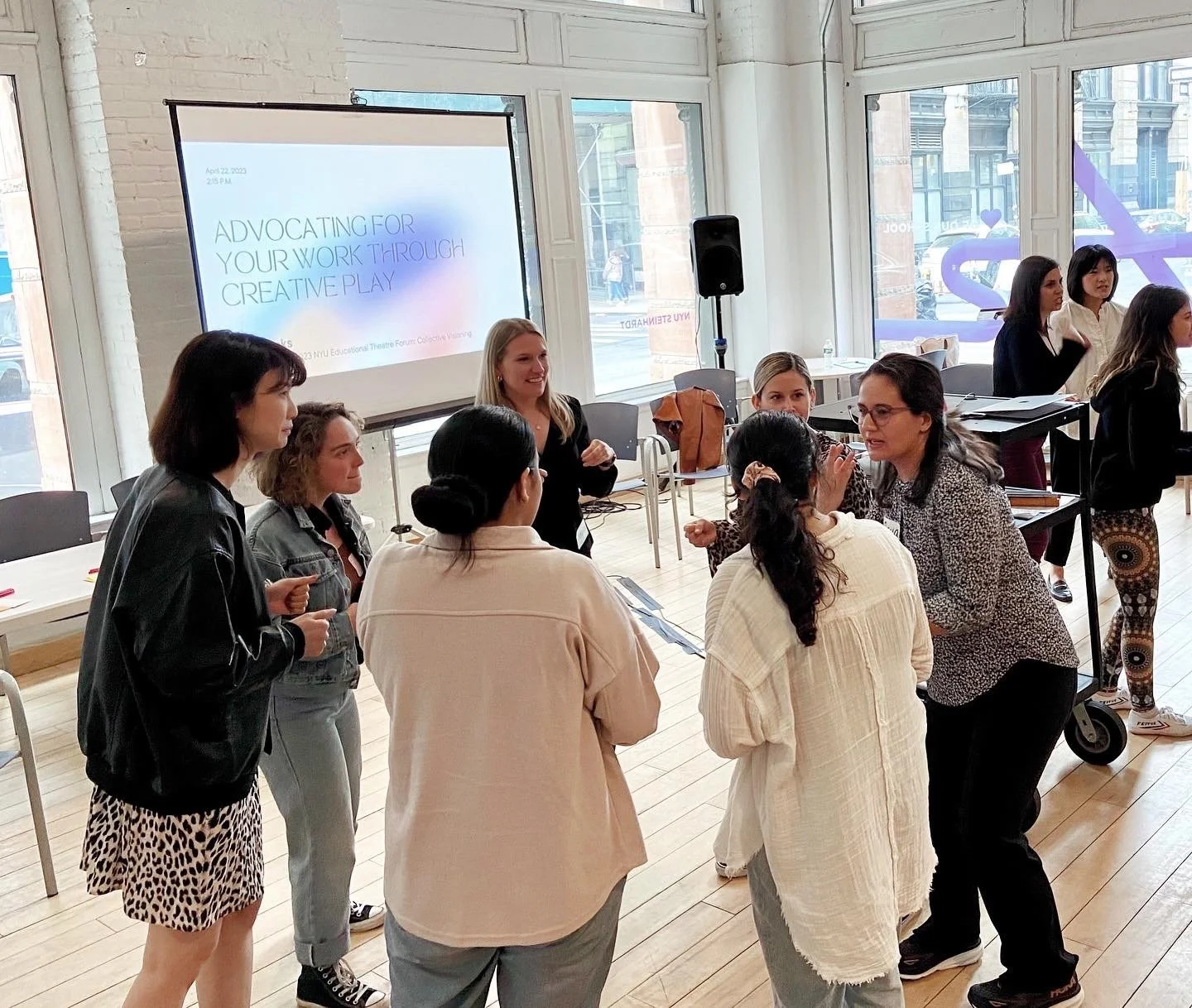What can improv do for teachers?
The improv mindset encourages students to affirm and build on each other's ideas, thus creating trust and classroom community.
Improv strengthens students’ social-emotional skills such as self-regulation and perspective taking. Researchers have demonstrated that participating in improv can improve teenagers’ divergent thinking and ability to come up with original ideas. Improv can also reduce students’ anxiety and fear of failure.
Who leads these workshops?
Hi! I’m Saya.
I started my career as a classroom aide in a Pre-K classroom at The Nueva School in San Mateo, CA. Since then, I have been a high school English and Drama teacher, and I’ve taught a graduate seminar at New York University where I am finishing my PhD in Educational Theatre.
I took my first English class during my first year of teaching. I was an anxious perfectionist, and suddenly I was surrounded by unpredictable four-year-olds. I knew I had to learn how to be flexible and adjust when the unexpected happened. A friend of mine suggested I take an improv class.
That first class transformed my approach to teaching. Rather than trying to control everything (which we all know is impossible in teaching), I learned how to say “yes, and” to my students’ curiosities while still achieving our goals, how to bounce back when my plans failed, and how to be a more agile classroom leader.
I offer these workshops to educators because practicing the improv mindset has been the single most helpful tool in making me an effective teacher.
You can learn more about my teaching at sayajenks.com.
We offer participatory professional development workshops that give teachers opportunities to try the improv mindset for themselves and equip them to teach it to their students.
This workshop is designed to:
Foster growth mindsets: Improv reframes mistakes as opportunities for learning, empowering teachers to model resilience and adaptability for their students.
Boost classroom communication: Improv training sharpens active listening and encourages collaborative dialogue skills that directly improve student engagement and teacher-student relationships.
Strengthen team culture: Through laughter, connection, and shared creativity, your faculty will strengthen their interpersonal bonds and sense of camaraderie.
Enhance instructional agility: Teachers learn to think on their feet, pivot gracefully in response to students' needs, and create more inclusive, responsive learning environments.
Support SEL & trauma-informed practices: The improv mindset aligns with social-emotional learning, promoting empathy, emotional awareness, and a culture of mutual respect.

